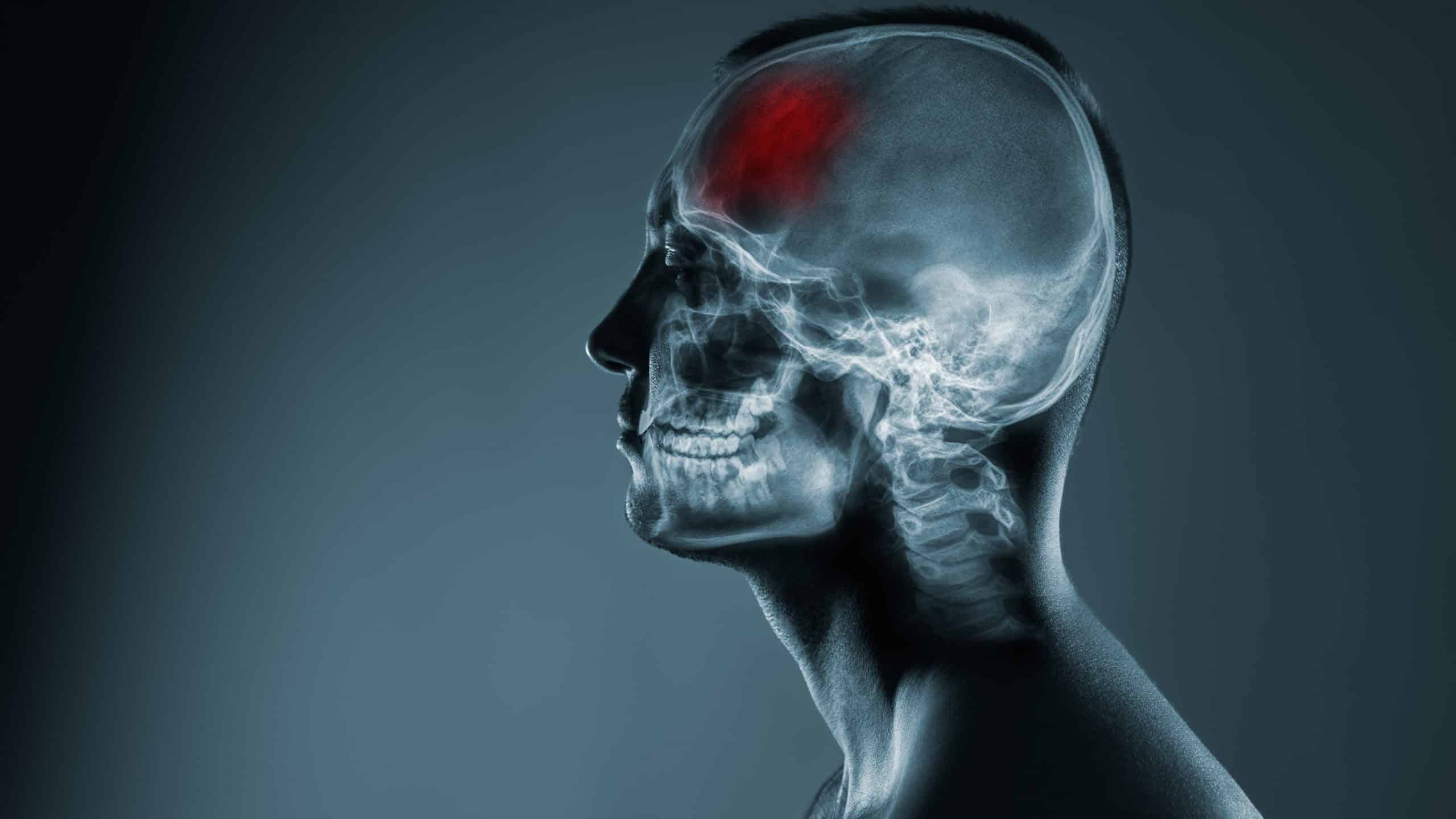
TBI Meaning – Traumatic Brain Injury Guide
A traumatic brain injury, or TBI, occurs due to a sudden jolt to the head or an object impaling the skull. Also known as an acquired brain injury, this condition often impacts how the brain works, potentially resulting in disability or death. Minor TBIs can occur as well, although repeated trauma increases the risk of brain damage.
Table of Contents
- What is TBI?
- Traumatic Brain Injury Causes
- Types of Traumatic Brain Injury
- TBI Symptoms / Characteristics
- Effects of Traumatic Brain Injury
- Traumatic Brain Injury Treatment
- Traumatic Brain Injury Recovery
- Lawsuits Involving Traumatic Brain Injury
- FAQs About TBIs
What Is TBI?
A TBI is a traumatic brain injury. When this type of injury occurs, the tissues in the brain suffer minor to severe damage. A blow to the head, gunshot wound, or other sudden assault can all cause an injury to the brain. The resulting damage may be temporary, cause lifelong health issues, or even end life prematurely.
Traumatic Brain Injury Statistics
Traumatic brain injuries affect more than 2.8 million people per year in the United States [1]. At that rate, about three people suffer a TBI every single minute of each day throughout the year. Millions more must live with a disability caused by the brain damage. Across all TBI cases in the US, the costs of care, lost wages, and other expenses add up to a stunning $76.5 billion.
Traumatic brain injuries have a mortality rate of 30 per 100,000. As a result, each year, more than 50,000 people die after sustaining a TBI [2]. The remainder of TBI patients go on to make a partial to full recovery. The risk of dying from an acquired brain injury increases after age 30. The ability to fully recover from a TBI decreases markedly with age as well.
The prevalence of TBIs increases year after year, too. Since 2006, traumatic brain injury-related medical care and deaths increased by more than 50 percent.
TBI Medical Term
As far as TBI medical terms go, you might see the traumatic brain injury definition centered around acquired brain injury language. The “acquired” part of the equation points to the fact that the injury did not happen at birth or due to genetics or degenerative diseases. Instead, the TBI occurred due to sudden trauma to the head.
Despite efforts from medical professionals, efforts to reverse damage to the brain caused by trauma have made very little progress. But certain medical therapies can help the brain rewire itself and promote the restoration of certain functions, like the ability to speak clearly and walk without assistance.
Traumatic Brain Injury Causes
A sharp blow to the face, skull impalement, or any other sudden trauma to the head can result in a traumatic brain injury. The type of injury and overall force of the impact greatly influences the severity of the damage to the brain tissues.
Sports Injuries
About 10 percent of traumatic brain injuries happen while playing sports, spending time on the playground, and enjoying other recreational activities [3]. The greatest risk comes while playing high-impact team sports, like football, soccer, and basketball. Bicycling and playground visits pose a high risk as well, sometimes linked to the high speeds of travel and height of the equipment, respectively.
Auto Accidents
Car accidents typically cause about 14 percent of the traumatic brain injuries that occur each year [4]. When it comes to TBI-related deaths, however, auto accidents are the leading cause in young adults and children. The collisions leading to brain injuries occur in many different kinds of vehicles, including cars, trucks, vans, and motorcycles. Collisions involving bicycles and pedestrians present an even higher risk of a TBI occurring.
Violent Assaults
Traumatic brain injuries often arise due to violent assaults, ranging from fistfights to gunshot wounds. Getting mugged, kidnapped, or otherwise physically assaulted puts you at serious risk of suffering a TBI. In addition, domestic violence survivors often suffer more head injuries than football players [5]. Shaken baby syndrome and other forms of child abuse can potentially cause traumatic brain injuries as well.
Slip and Fall Injuries
Slip and fall accidents can result in a minor to severe TBI if you hit your head during the event. A fall from a ladder or other tall structure presents the highest risk. But simply slipping in the bath, down the stairs, or on another slick surface are all potential causes of traumatic brain injury. The risk is highest for young kids and seniors, although anyone can suffer brain damage from a fall.
Whenever a head injury occurs, there’s a risk of developing a TBI. That’s why it’s so important to seek care immediately after hitting your head, no matter how minor it seems.
Types of Traumatic Brain Injury
Traumatic brain injuries are categorized as penetrating or considered a closed head injury.
- A penetrating injury occurs when an object breaks through the skull and directly impales the brain tissues.
- A closed brain injury happens when the head suddenly impacts an object or vice versa. As a result of the impact, the brain strikes the inside of the skull, resulting in minor to severe damage of the tissues.
Within these two categories, many types of traumatic brain injury exist.
Concussion
Concussions occur most often due to a blow to the head or severe whiplash. They are one of the most common types of traumatic brain injuries as a result [6]. The majority of concussions result in minor damage to the brain, causing a temporary impairment. Repeated concussions can add up to serious brain damage, however.
Hemorrhage
When a head injury results in uncontrolled bleeding in or around the brain, it’s referred to as a hemorrhage. There are two types of hemorrhages: subarachnoid and intracerebral. Subarachnoid hemorrhages occur in the space between the brain and the skull. Intracerebral hemorrhages are bleeding within the brain itself.
Hematoma
A hematoma occurs days to weeks after suffering a head injury, leading to damage to the brain tissue. This condition results from blood collecting outside the vessels in and around the brain. As the blood pools, pressure builds in the skull and compresses the tissue enough to cause temporary to permanent damage.
Coup-Contrecoup
In the event of whiplash or a direct blow to the head, a coup-contrecoup injury can occur. This type of TBI happens as the brain collides with the skull on one side, and then rebounds against the other side of the bony material. Both impacts cause damage on either side of the brain, worsening the severity of the brain injury considerably.
Diffuse Axonal Injury
A diffuse axonal injury happens when blunt force trauma causes the brain to twist. The twisting motion results in axonal shearing, which can range from microscopic to catastrophic. Depending on its severity, the shearing interrupts the communication of the neurons in the brain, causing a loss of key motor functions.
Penetrating wounds complicate the injury considerably due to the direct damage to the brain tissue. The damage to the skull often reduces the risk of additional damage from brain swelling, although that’s not always the case.
TBI Symptoms – Characteristics of Traumatic Brain Injury
Traumatic brain injury symptoms can range from mild to severe, depending on the severity of the trauma. Furthermore, the symptoms may be temporary, lasting just a few weeks – or result in lifelong disabilities or even death.
After a head injury occurs, TBI symptoms may appear right away or take days to weeks to develop. In many cases, a mild to moderate TBI will result in a severe headache, nausea and vomiting, fatigue, and dizziness. A loss of consciousness that accompanies a TBI typically lasts for a few minutes to a couple of hours.
Symptoms Associated with Mild to Moderate TBI
- Difficulty speaking
- Blurred vision
- Ringing in your ears
- Sensitivity to light and sound
- Mood swings
- Trouble concentrating
- Not feeling like yourself
Moderate to severe TBIs may initially cause mild symptoms, but the condition tends to worsen as the days go by. At the time of the injury, a loss of consciousness typically occurs and lasts up to several hours.
Common Symptoms of Moderate to Severe Traumatic Brain Injury
- Headache that won’t go away
- Loss of coordination
- Dilated pupils
- Recurrent vomiting
- Agitation
- Severe confusion
- Slurred speech
- Seizures
In some cases, the brain may suffer so much damage that it results in a coma.
Possible Symptoms of Traumatic Brain Injury in Children
Children show signs of a traumatic brain injury differently than adults do, especially if they are unable to verbally tell you about their symptoms. For that reason, doctors will typically have parents and guardians watch for changes in the child’s demeanor after a head injury occurs.
As you monitor your child, you might notice that they are not eating and drinking like normal – or seems irritable, distracted, or depressed. An inability to sleep, play, or be consoled also point to the development of a TBI.
Effects of Traumatic Brain Injury
Moderate to severe traumatic brain injuries typically cause lasting health issues. The risk of complications increases if the initial injury caused an extended period of unconsciousness or a coma.
When a minor TBI occurs, the impact on your brain cells may only last a short while. Repeated or more serious brain injuries, however, can severely impact your quality of life. Lifelong health complications are common with moderate to severe brain damage, resulting in the need for costly ongoing care and an inability to support yourself.
The most common effects of a TBI include:
- Problems concentrating and learning
- Difficulty communicating clearly
- Memory challenges
- Weakness in the limbs
- Coordination and balance issues
- Mobility limitations
- Sensory perception changes
- Depression and sadness
- Poor emotion regulation
- Impulsivity
In some cases, the traumatic brain injury can change your personality altogether. You might also notice difficulties controlling your behavior. In the face of daily difficulties, anger may bubble up to the surface before other emotions, leaving you struggling to manage your moods.
Suffering a TBI makes you more susceptible to serious health complications, like pneumonia, seizures, and infections [7]. The resulting health complications can reduce life expectancy by as much as nine years. Subsequent head injuries further increase the risk of lasting health effects.
Traumatic Brain Injury Treatment
Treatment for traumatic brain injuries ranges from ice and rest to life-saving procedures. The overall severity of the injuries, resulting complications, and symptoms determine the amount of care you might need.
To determine the severity of the TBI, medical professionals will usually rate your condition using the Glasgow Coma Scale. The scale focuses on three main responses:
- Eye Opening
- Verbal
- Motor
People who’ve suffered a severe head injury will score eight or fewer points. Mild head injuries score in the 13 to 15 point range. Additional diagnostic tests include MRI, CT scan, and the use of an intracranial pressure monitor.
Using the diagnostic test results, medical professionals can decide how to best treat your condition. For mild TBIs, the treatment centers around rest, ice for swelling, and over-the-counter pain medications. A trusted individual should closely monitor for new or worsening symptoms.
Moderate to severe injuries typically require immediate emergency care. The care team will focus on maintaining the right level of oxygen, maintaining blood pressure, and treating symptoms. They will monitor their patient direction for new and changing symptoms as well.
Depending on how the condition progresses, it may be necessary to treat inflammation, bleeding, oxygen supply issues, and other complications caused by the TBI. The administration of anti-seizure drugs, diuretics, and coma-inducing drugs can help get you stabilized and promote recovery.
In extremely severe TBI cases, it may be necessary to perform surgical procedures like:
- Repair skull fractures
- Remove blood clots
- Stop bleeding in the brain
- Relieve pressure caused by swelling
If you need ongoing medical support or time to recover from surgery, you might stay in the hospital until fully stabilized and on the mend. Otherwise, you will go home for monitoring by a family member or other caregiver.
Traumatic Brain Injury Recovery
Many people recover from mild traumatic brain injuries within just a few weeks. Moderate to severe TBIs require a much longer healing time, however, especially if it was necessary to perform surgery. Rehabilitation is usually required after surgery and for TBIs that cause mobility difficulties, speech challenges, and other losses of function.
The hospital may initiate your transfer into rehabilitation, although it’s also possible to go to an outpatient rehabilitation center for care. The rehab center will focus on facilitating a great recovery while helping you regain lost skills.
Physical therapists, occupational therapists, and speech and language therapists all typically work together at rehab centers. Other medical professionals who may be involved in your care process include neuropsychologists, physiatrists, social workers, and rehabilitation nurses.
Well after getting discharged from the hospital or rehab center, it’s often helpful to get extra support if the TBI causes lasting health effects. You can join a support group that meets online or in-person, for example. Or meet with a counselor, recreational therapist, and vocational counselor to get help making key changes to your daily routine.
Traumatic Brain Injury Lawsuits
Traumatic brain injuries not only impact your quality of life, but also come with many financial repercussions as well. You have to pay for your initial medical bills, deal with lost wages, future lost income, career changes, and even make changes to your home design. Beyond that, your future medical expenses could end up much higher than they would have been if you never suffered the TBI in the first place.
When another party’s negligence or malicious actions cause your TBI, it’s time to consider justice and fair compensation for what you or your loved ones are going through. An experienced traumatic brain injury attorney understands how to build a strong case and present the facts in court to get you the compensation you deserve.
Most TBI victims taking legal action begin with a free case evaluation where a traumatic brain injury attorney will take the time to learn about how your injuries occurred and the challenges you’ve faced as a result. They will listen to your story and create a plan of action designed to help you recoup your losses, provide the support you need throughout the case, and make you whole again in the eyes of the law.
More TBI Legal Resources
- Traumatic Brain Injury Lawyer
- How To Prove a TBI In Court
- How to Help Someone with a TBI
- 5 Things You Should Know about Brain Injury Litigation
Frequently Asked Questions About TBIs
Who is at the most risk of traumatic brain injury?
Children under age one and seniors age 65 and older are most at risk of suffering a traumatic brain injury [8]. Fifteen to nineteen-year-olds also face a high risk of TBIs. Athletes, people in abusive relationships, and veterans all face a significantly elevated risk as well.
How long does a traumatic brain injury last?
A mild traumatic brain injury usually only lasts a few days to several weeks at the most. Recovery from moderate to severe TBIs takes about two years on average. But patients can continue to improve for up to 10 years after the injury occurs [9].
What is the most serious type of TBI?
Diffuse axonal injuries are the most serious type of TBI. The twisting damage shears the neuron pathways, resulting in a minor to major loss of function. If the pathways cannot repair themselves over time, the loss of function could end up permanent.
Is brain damage always permanent?
The brain has the ability to heal and repair itself, so damage is not always permanent. In some cases, the brain tissue does not fully heal, resulting in seemingly permanent functional losses. If the brain manages to create new pathways, function could return.
Can the brain repair itself?
The brain can repair itself due to its natural neuroplastic abilities. The brain’s plasticity is strongest at a young age and worsens through the years. So, young children often have a much better chance of making a full recovery from a TBI than seniors do.
Can doctors fix brain damage?
Doctors cannot directly fix brain damage, but they can perform surgery to halt blood loss, reduce pressure on the brain, and prevent further complications. The procedures can also help stabilize the patient, so they have a chance to rest, recuperate, and start to recover. Rehabilitation specialists can help patients recover lost functions, like the ability to speak clearly and walk on their own.











